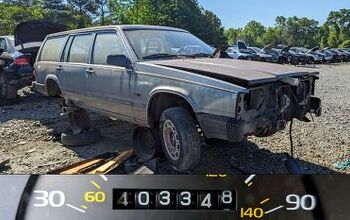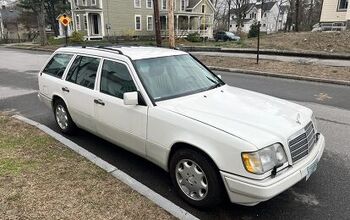How To Make Hundreds Of Millions Without Even Trying

Last week, we shared with you an ingenious method of the U.S. Department of Justice to contribute to the deficit-afflicted holdings of the U.S. Treasury. The method involves shaking down foreign companies who grease the wheels to get deals in even more foreign lands. Or who even think about greasing the wheels. Caught between European laws and U.S. laws, these companies pay and promise to sin no more.
Last week, Germany’s Daimler agreed to pay $185m to settle charges brought by the U.S. Justice Department and the Securities and Exchange Commission.
The Financial Times went through the proceedings and found out that the lawyers at the D.O.J. devised a clever method that turns a European rule into a steady stream of cash for the U.S. government. Writes the FT:
“A close look at hundreds of pages of court records show that the maker of Mercedes-Benz was never formally charged with paying bribes, though two of its subsidiaries were.”
“Instead, it was charged with conspiracy to commit bribery – an allegation that is usually reserved for defendants who plan, but do not execute, crimes – and a violation of “books and records provisions” of a US anti-bribery law.”
“Having entered into a “deferred prosecution agreement”, Daimler did not plead guilty to any charges, including the lesser conspiracy charge.”
This may sound like a technicality only lawyers can get excited about. However, the generous payment got Daimler off the hook with the European Union. EU rules forbid any company from receiving an EU contract if it has been found guilty or convicted of bribery.
This wouldn’t just have removed Mercedes Benz cars from European motorcades. Daimler is a major shareholder of EADS, a company that dabbles in such gadgetry as the Airbus, the Ariane rocket, the Eurocopter, the Eurofighter, and other expensive toys.
The mere idea of losing that business turns European companies into putty in the hands of D.O.J lawyers. And the money is rolling in:
Just last month, BAE Systems, the British defense group, paid $400m in fines to the DoJ. Again, BAE was not charged with bribery. They pleaded guilty to allegations of making false statements about their anti-bribery compliance program.
Likewise, the DoJ’s case against Siemens in 2008, that brought in $800m in penalties, hinged on “books and records” violations.
Even if the D.O.J. lack evidence of criminal intent, even if a pay-off is considered, but never committed, these “books and records” violations can turn into a goldmine. The Foreign Corrupt Practices Act (FCPA) contains a “books and records provision” that requires companies to record “facilitation payments” on their books. Companies often find themselves in the position of being obliged by U.S. law to keep accurate accounts of something that is illegal in their home country. In other words: Avoidance of self-incrimination is a crime. However, these books and records boo-boos don’t count as bribery in the EU. Says the FT:
“Companies with deep pockets can afford steep penalties. But the severe consequences they face in Europe and sometimes the US if they are found guilty of actual bribery might be insurmountable, giving the DoJ a strong hand in negotiations.”
D.O.J. lawyers never explicitly threaten that companies should settle for lesser allegations in order to avoid bribery charges. Company attorneys quickly make that suggestion and work out a deal.
And how do the D.O.J. and the S.E.C. get jurisdiction? Not via U.S. shell companies, or U.S. accounts, as it has been surmised. The Frankfurter Allgemeine Zeitung lifted that secret: If your stock is listed at a U.S. stock exchange, then they’ve got you.
The practice not only turned into a steady stream of income for the U.S. Treasury. It spawned a whole industry of corporate compliance consultants, that teach lax European corporations to stay clear of the long arm and the greedy hands of the U.S. law.

Bertel Schmitt comes back to journalism after taking a 35 year break in advertising and marketing. He ran and owned advertising agencies in Duesseldorf, Germany, and New York City. Volkswagen A.G. was Bertel's most important corporate account. Schmitt's advertising and marketing career touched many corners of the industry with a special focus on automotive products and services. Since 2004, he lives in Japan and China with his wife <a href="http://www.tomokoandbertel.com"> Tomoko </a>. Bertel Schmitt is a founding board member of the <a href="http://www.offshoresuperseries.com"> Offshore Super Series </a>, an American offshore powerboat racing organization. He is co-owner of the racing team Typhoon.
More by Bertel Schmitt
Latest Car Reviews
Read moreLatest Product Reviews
Read moreRecent Comments
- Brendan Duddy soon we'll see lawyers advertising big payout$ after getting injured by a 'rogue' vehicle
- Zerofoo @VoGhost - The earth is in a 12,000 year long warming cycle. Before that most of North America was covered by a glacier 2 miles thick in some places. Where did that glacier go? Industrial CO2 emissions didn't cause the melt. Climate change frauds have done a masterful job correlating .04% of our atmosphere with a 12,000 year warming trend and then blaming human industrial activity for something that long predates those human activities. Human caused climate change is a lie.
- Probert They already have hybrids, but these won't ever be them as they are built on the modular E-GMP skateboard.
- Justin You guys still looking for that sportbak? I just saw one on the Facebook marketplace in Arizona
- 28-Cars-Later I cannot remember what happens now, but there are whiteblocks in this period which develop a "tick" like sound which indicates they are toast (maybe head gasket?). Ten or so years ago I looked at an '03 or '04 S60 (I forget why) and I brought my Volvo indy along to tell me if it was worth my time - it ticked and that's when I learned this. This XC90 is probably worth about $300 as it sits, not kidding, and it will cost you conservatively $2500 for an engine swap (all the ones I see on car-part.com have north of 130K miles starting at $1,100 and that's not including freight to a shop, shop labor, other internals to do such as timing belt while engine out etc).


































Comments
Join the conversation
SOP http://news.yahoo.com/s/ap/20100329/ap_on_bi_ge/as_china_rio_tinto_trial;_ylt=Au5b0aTHB7DSt5Tg5BOVHKqyBhIF;_ylu=X3oDMTJ0a3AwcG5jBGFzc2V0A2FwLzIwMTAwMzI5L2FzX2NoaW5hX3Jpb190aW50b190cmlhbARwb3MDNgRzZWMDeW5fYXJ0aWNsZV9zdW1tYXJ5X2xpc3QEc2xrA2NoaW5hc2xhcHNyaQ--
How about what China metes out when officials TAKE bribes: http://english.people.com.cn/90001/90776/90882/6394664.html http://www.telegraph.co.uk/finance/newsbysector/energy/oilandgas/5834749/Sinopec-chairman-gets-suspended-death-sentence-for-bribery.html http://www.timesonline.co.uk/tol/news/world/asia/article1854680.ece